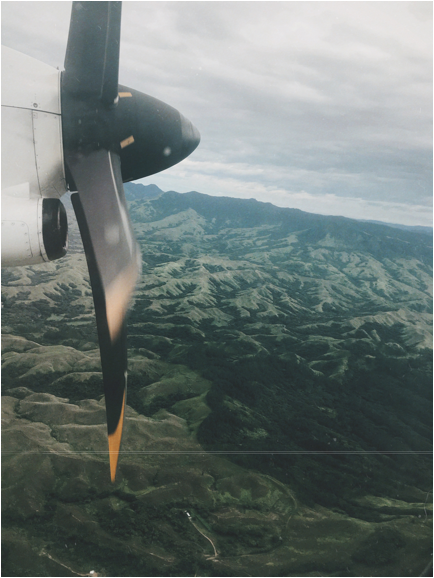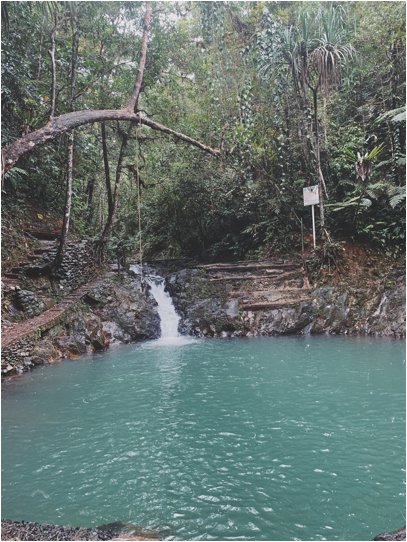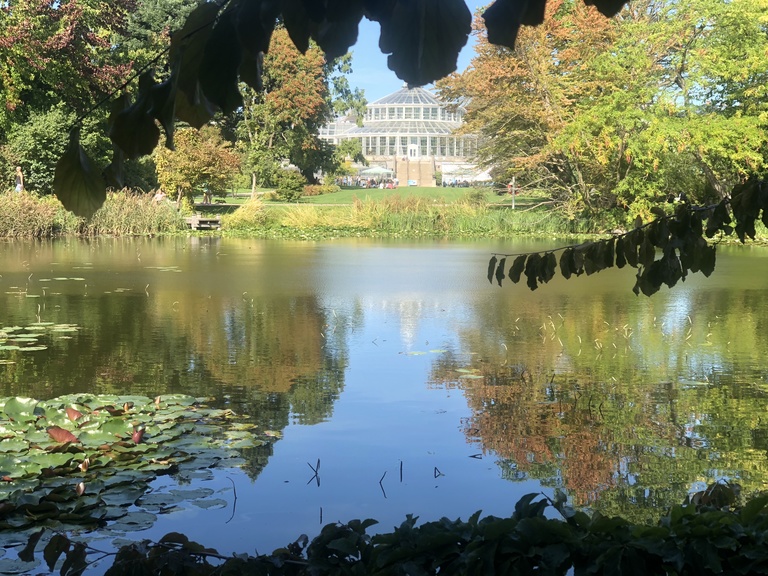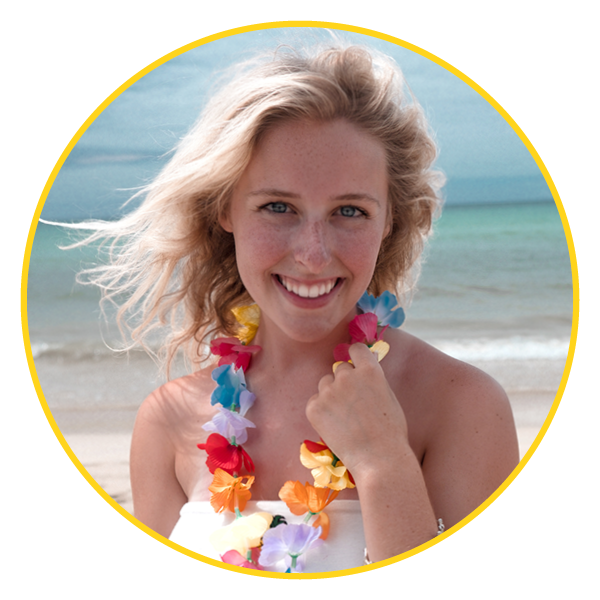
After months of preparing and packing, I finally arrived in Fiji for my semester abroad.
I’d been looking forward to this for years. I’d spent copious amounts of time researching programs and countries, contemplating every possibility. I went from Iceland to Scotland to Australia to Malta…and finally settled on Fiji. I threw some bikinis, shorts, and t-shirts into a suitcase, beyond excited to experience life in a tropical paradise and take part in the culture of a developing, post-colonial nation. I could hardly wait to be snorkeling in the ocean and going on field trips with my marine biology class! I just wanted to be there already!

That is until I got on the plane. As I rushed to the international terminal in San Francisco, anxiety and fear hit me full force. I was leaving behind my college friends. I had said goodbye to my parents for four whole months, waving to them from airport security until they were out of sight. I was subjecting my boyfriend and myself to a long distance relationship, something I’d hoped we’d never have to do. As I sat down in the window seat of a plane preparing to make the 11-hour journey to Fiji, I felt myself start to fall apart. I couldn’t breathe right. I began to cry, texting my boyfriend that I wished I could get off the plane right now and go home. He told me: “You will be okay. You are already on the plane, and when you land you’ll be in exactly the place that will make you better. I know that this will be a beautiful and life-changing experience, and you know it too.”
He was right. So I wiped away my tears, pressed play on Crazy Rich Asians, and before I knew it I was landing it Nadi, Fiji. I took a little plane to Suva and then a slightly terrifying taxi ride to my apartment. I met my flatmates, and we agreed to go out and explore the town together, each of us a little overwhelmed, a little lost, and more than a little excited for what was to come. In a week, we’d be attending classes, planning our weekend trips for the semester, and truly beginning our study abroad journey. But a lot would happen before then. So, here is what I did, saw, and learned in my first week in Fiji:
1) Logistics
My first day in Suva consisted mostly of me and my flatmates trying to figure out the most important things we needed to take care of and the necessities we needed to buy in order to get comfortable in Fiji. We bought new SIM cards to make local texts and calls, set up WhatsApp to talk to friends and family back home, and stopped by the International Office to get advice on where to buy groceries and household supplies.
Throughout the week, I learned the cheapest and most quality places to buy food, figured out how to work my adapters, and learned how to use Fiji’s amazing bus system! Taking this first week to really get settled in and learn how to find my way around the University of the South Pacific, Suva, and the island itself really helped me start to feel more comfortable and at home here. My flatmates and I cook dinner together every night, we’ve figured out the cheap and easy bus system, and we can communicate with everyone in our lives without issue!
Pro tip: One of Fiji’s largest phone services is called Vodafone. Vodafone not only supplies you with a SIM card but a bus pass as well. Stop by Vodafone during your first few days in Fiji and get $20 put on a bus card so that you can make weekend trips to beach resorts and other fun places!

2) A Trip to Colo-i-Suva Forest and Waterfalls
My flatmates and I were invited by a group of other international students to accompany them on a field trip to Colo-i-Suva Forest, which is famous for its waterfalls and swimming holes. We launched into the pools from a rope swing, hiked up the waterfalls, and enjoyed the lush greenery of the forest! We not only had a great time escaping the intense afternoon heat for a dip in fresh water, but we also made friends with the students who’d invited us and got some great pictures!
3) Suva City Tour
The International Office took us on a tour of Suva so we knew all of the most important places in the city. They showed us how to use the Suva bus system to ride from campus into the city and where the big bus stops were. Once we were there, we took a walking tour, stopping at the beautiful Grand Pacific Hotel, the rugby fields, the flea markets, and a shopping center. They pointed out some places to go for fun, as well as where the huge Saturday morning farmer’s market takes place. Suva City was definitely a different place than I was used to! It was loud and bustling, with fruit being sold on the sidewalk, cars honking incessantly, and open aired shops on every corner. It’s certainly not like many cities in the U.S.!
4) A Weekend at the Beach House Resort
Perhaps the highlight of my first week was a trip to the Beach House Resort with my flatmates and a lot of the other international students. We hopped on the Pacific Express (a bus that travels around the island) and rode about 1½ hours to the resort. There was a lot to do at the Beach House, but I spent most of my day swimming in the rain, watching rugby, and enjoying the live band at night.
The next morning was such a sunny, beautiful day. My flatmate and I swam in the crystal clear ocean for almost an hour before enjoying a rinse in our outdoor shower and catching the bus home!
Pro tip: Most of the resorts here have a dorm section (similar to a hostel) to cater to their more budget conscious guests. That was perfect for a group of college students, so we booked beds in the dorms. The Beach House dorms were priced around 45 Fijian dollars a night, including free breakfast, but prices vary across the other resorts depending on the overall quality of the rooms and the surrounding area.

5) Making New Friends
I found that as soon as I arrived in Suva, I wasn’t lonely! I met my flatmates immediately and from then on we explored everything together. The International Office planned several events to help international students meet and befriend each other, including an orientation and dinner party. My flatmates and I quickly found other students to hang out with, and we were immediately invited by another group to join them on an adventure the next day! It was so easy to meet friends in the first week. While I would say I’m closest to my flatmates (naturally, a lot of the international students here formed tighter bonds with the people they live with), there are a lot of great people here to spend time with.
6) Starting Classes
Getting my schedule together was one of my priorities upon arriving in Fiji. I needed to make sure I got at least a few classes that would count for credit back home, so I was anxious to register. This process was very stressful for many of the students here. USP is less speedy and organized than the American universities we’re used to, and most of our schedules weren’t finalized until a few days into the academic semester, meaning many people missed their first lectures.
Fortunately, I was able to get the majority of classes I wanted with a fairly reasonable schedule, but it did take some assertiveness and stopping by the International Office a few times to sort things out.
Furthermore, the class system here is slightly different. It follows the British system of lectures and tutorials (which would be similar to the discussion section of a lecture class in the U.S.). The dates, times, and classroom numbers are not the same throughout the week. The lecture you were in on Monday is in a different room than your Wednesday lecture. It just takes a bit of adjusting to, but now that I’m in my classes I’m so happy! They are absolutely fascinating. I’m taking a mixture of literature and science classes, so I feel like I’m learning about the Fijian islands from several different perspectives. I’m excited to continue my education here this semester.
7) Being Independent (and Not Even Homesick!)
Starting a new semester in a completely different country is certainly a daunting task, and I had to master a new level of independence in my first week here. Because of the cultural and economic differences between Fiji and the U.S., my flatmates and I found it slightly hard to come across products and foods we took for granted back home. We learned to make do with what was available to us. We had to adjust our lifestyles to the cultural realities of Fiji, and while that can, at first, seem irritating or overwhelming, we quickly slipped into a comfortable and easy routine.
We bought food for the week and cooked dinner together every night, and we will likely continue to do so for the entire semester. We found the products that were necessary to our academic and home lives, and we learned to live without the things that we couldn’t find or afford (imported products are extremely expensive in island countries). We found our way around Suva and campus, and our new lives, and it’s already been a rewarding transition.
All these distractions and outings with my flatmates also kept me from feeling too homesick! I haven’t cried since the plane ride here, and while I, of course, miss my boyfriend, family, and friends, it’s been very manageable. I’m so involved in my new life that there’s no room for anything but happiness and excitement at this point in my semester!
8) Seeking Medical Attention
One night making dinner, my flatmate cut her thumb opening a can. The cut was at least a centimeter deep, if not more, and we knew we needed to find a medical facility. We called an emergency number and a USP official helped us take a taxi to a medical center. As soon as we got inside we became concerned. The center was small and crowded, filled with families waiting in long lines to be helped. Medical supplies were lying in heaps on tables and in cupboards, and there were only two nurses and one doctor. After waiting about 15 minutes, my flatmate was brought into a room by the nurse, who gave her a tetanus shot (without applying an antiseptic wipe or a Band-Aid) and sent her into another line to meet the doctor. After 30 minutes of waiting, the doctor examined my flatmate's thumb. She decided the skin was too soft for stitches and sent her back to the nurse to get a butterfly Band-Aid. The nurse, however, did not comply with this order and merely wrapped the thumb in gauze.
We felt that the medical attention my flatmate received was not sanitary or safe, so we decided to go to the Suva Private Hospital, which practices Western-style medicine. We felt much more comfortable there, and although it took a long time, my flatmate was able to receive the care she felt she needed, which included washing her wound out, getting the tissue glued, and being prescribed antibiotics.
This experience was eye-opening for me. I saw first hand the health care that people in developing countries receive daily, and I felt not only grateful for my health care in the U.S. but also angered and concerned about the low standard treatment that is the only affordable option available for most people in Fiji. This was by far the moment that gave me the most culture shock during my first week here. While I knew in theory that developing countries struggle with providing what we consider "quality" health care, seeing it first hand was far more emotional and shocking than I would have ever imagined, and I’m grateful for the experience.

9) Going with the Flow (Fiji Time!)
Island time is a real thing, people! Fiji is much more relaxed about deadlines and start times than the U.S. This was a bit of a struggle for a lot of international students at first, who were used to the punctual, precise nature of American governmental and academic institutions. You just have to tell yourself that whatever needs to be done will get done all in good time, and you may as well sit back and enjoy the slow-moving, leisurely process! One great thing about Fiji time is that professors find it completely acceptable and relatively normal for students to show up late to class!
I want to bring back this characteristic to America. It’s so healthy to take a breath sometimes and not expect everything to fall into place at a specific time or date. I’ve loved letting myself live a little slower and enjoy the time and space I have to be present in the moment, rather than filling every inch of free time with tasks, whether that task is a homework assignment or just a scroll through my social media. I want to continue these habits throughout the semester, as well as when I return home.
10) Taking Advantage of Every Opportunity
If there’s something I’ve heard too many times this first week, it’s that your semester abroad will fly by and when it’s over, you’ll feel that you haven’t done enough. My flatmates and I want to travel and explore Fiji and it’s many islands every possible moment that we can. Every weekend is booked with plans and adventures. Our schedules are filled with interesting and challenging classes. We’re looking to get involved with sports and clubs. None of us want to let this semester end without doing everything we possibly could. There’s so much to see and do here, and I can’t wait to experience it all!

Addison Bushnell is an English and creative writing major at the University of Iowa. A native of Eau Claire, Wisconsin, Addison is spending her semester in Suva, Fiji, on the ISEP University of the South Pacific program.